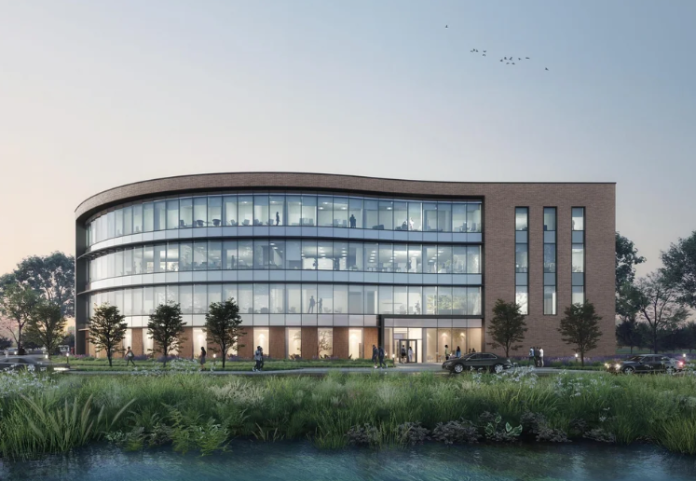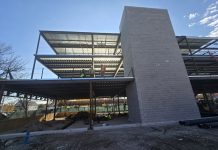Chicago Construction News staff writer
South Suburban College has broken ground on a $52 million Allied Health & Nursing Center, a four-story, 70,000-square-foot addition that officials say will expand healthcare education and strengthen the region’s workforce.
The project, more than 15 years in the making, is being funded through a state Capital Development Grant with support from Gov. JB Pritzker. The new facility will house state-of-the-art programs for fast-growing medical fields and is scheduled for completion in 2027.
“This is more than a building; it is a promise to our community,” SSC President Dr. Lynette D. Stokes said. “It’s a promise to prepare our students to serve with skill and compassion, to meet the growing demand for healthcare professionals, and to strengthen the health and vitality of the Chicago Southland for generations to come.”
Designed by The Architects Enterprise, Ltd. (prime architect) and Wight & Company (associate architect), the building will include modern classrooms, advanced simulation labs and collaborative learning spaces. The steel-framed structure integrates shear walls at stairwells and elevators, with a curving glass stair tower anchoring the northwest corner. Curtain walls with integrated sunshades will frame the curved façade, while masonry and stacked curtain wall will define the orthogonal elevations.
A one-story extension will connect the center to the existing campus buildings, with renovations to reconcile a half-story elevation difference on the site.
“This facility reflects our vision for a stronger, healthier future,” said Terry R. Wells, chairman of the SSC Board of Trustees and mayor of Phoenix, Ill. “It will provide our students with world-class training right here at home and send a clear message that we are investing in our people, our economy, and our community’s well-being.”
The Illinois Capital Development Board is managing the project, with construction intended to support partnerships with local hospitals, clinics and care providers while directly addressing the region’s shortage of nurses, medical technicians and allied health professionals.






